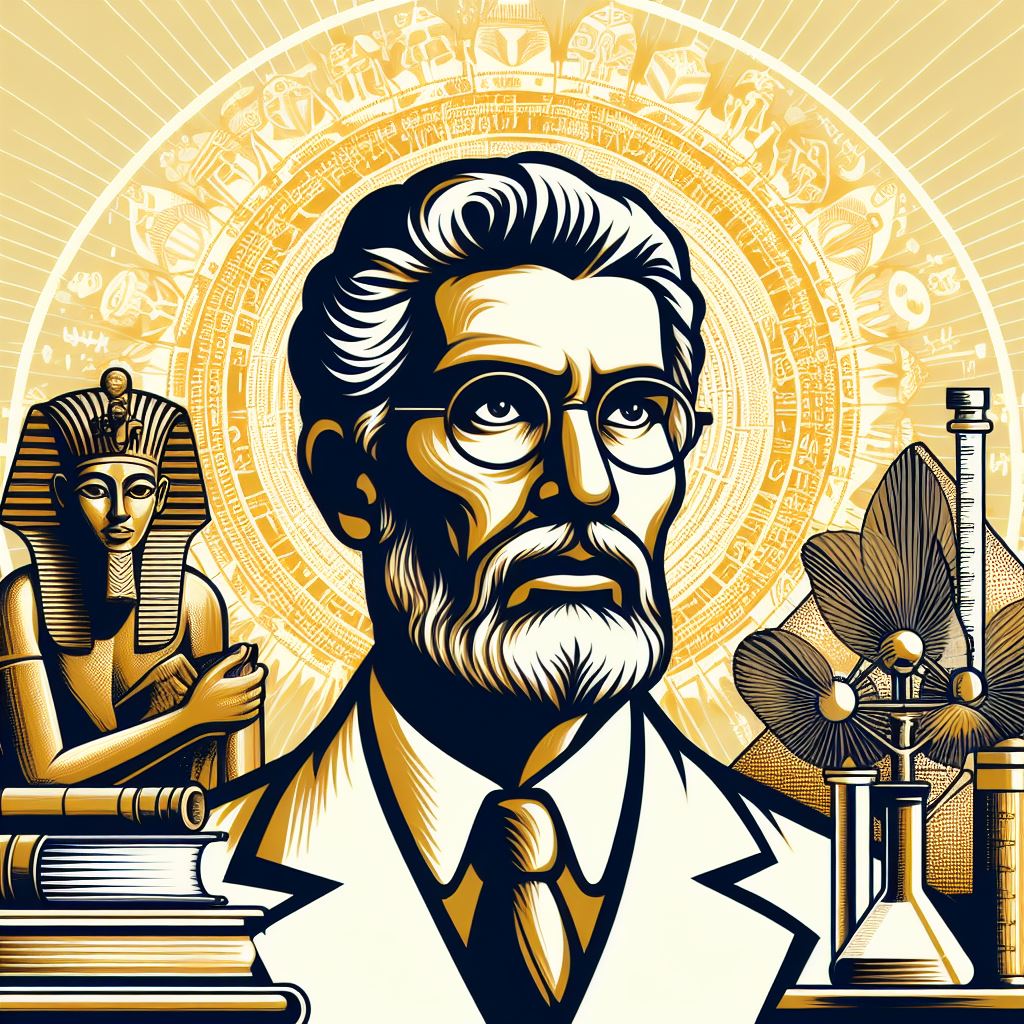Alexander the Great, driven by ambition and vision, wanted a city that would be a center of culture, commerce, and strategic power. His relentless conquests led him across many lands, and it was in 331 BC that he laid the foundations for what would become one of the most influential cities in ancient history – Alexandria.
Situated along the Mediterranean coast of Egypt, Alexandria was a calculated choice. Its location was perfect for controlling trade routes between Europe and Asia. With the Nile River close by, the city had access to fresh water and fertile lands, essential for sustaining a growing population.
Alexander’s blueprint for Alexandria was nothing short of grand. He enlisted eminent Greek architect Dinocrates to design a city that would reflect the glory of his empire. Wide, straight roads, majestic buildings, and a large harbor were all part of the plan. The city layout was methodically planned to ensure it could grow sustainably, with room for public spaces, residential areas, and commercial hubs.
The initial construction phases saw the rapid development of essential infrastructure. Ports were constructed to facilitate trade, and defensive walls were built to protect the city from potential threats. Alexandria swiftly transformed into a bustling metropolis, attracting traders, scholars, and adventurers from all corners of the known world. This thriving city bore the mark of Alexander’s dream, echoing his legacy throughout history.
The Glorious Age: Alexandria as a Center of Knowledge
The establishment of the Great Library marked Alexandria as a beacon of learning and wisdom. Founded by Ptolemy I Soter, Alexander’s successor, the library sought to collect all the knowledge of the ancient world under one roof. It housed thousands of scrolls and manuscripts, turning Alexandria into a hub for scholars and intellectuals.
Alexandria’s universities and institutions attracted some of the greatest minds of the time. Mathematicians, astronomers, philosophers, and physicians gathered here, pushing the boundaries of their respective fields. Figures like Euclid, known for his work in geometry, and Hipparchus, the father of trigonometry, were among the many who contributed to Alexandria’s intellectual legacy.
Cultural achievements in Alexandria weren’t limited to the sciences. The city was a melting pot of traditions and ideas, fostering artistic and literary endeavors. Poets like Callimachus and dramatists thrived, enriching the cultural tapestry of the city.
The impact of Alexandria extended beyond its physical boundaries. The knowledge preserved and created here influenced civilizations far and wide. The blend of Greek and Egyptian cultures formed a unique environment that stimulated innovations in various areas of life.
Alexandria set a standard for what a center of knowledge could be, influencing subsequent institutions like the Library of Pergamum and the schools in ancient Athens. The city’s commitment to learning and culture remains a touchstone for educational institutions even today.
Legacy Through the Ages: Alexandria’s Enduring Influence
Alexandria’s contributions to science, literature, and philosophy created a ripple effect that shaped many civilizations. This city was a birthplace for groundbreaking ideas that resonated through the centuries. Euclid’s “Elements” became a cornerstone of mathematics education, while the works produced in astronomy and philosophy laid the groundwork for future scientific inquiry.
The influence of Alexandria extended into the Roman and Byzantine periods, leaving an indelible mark on these cultures. Its blending of Greek and Egyptian traditions paved the way for a unique cultural synthesis that enriched the arts, architecture, and daily life. Even as the political landscape shifted, the intellectual heritage of Alexandria continued to inspire and nurture minds across the ancient world.
Key figures such as Hypatia, who was the last known philosopher and mathematician of the ancient world, were products of Alexandria’s vivid intellectual scene. Her tragic death marked the end of Alexandria’s golden age but also highlighted the city’s long-standing commitment to scholarship and inquiry.
The historical sites and artifacts of Alexandria serve as physical reminders of its storied past. Preservation efforts today aim to safeguard these treasures, ensuring that future generations can witness the city’s rich legacy firsthand. From the remains of the Lighthouse of Alexandria to the underwater ruins near the harbor, both locals and visitors can connect deeply with the history that permeates this city.
Modern Alexandria: A Blend of Past and Present
Modern Alexandria is a vibrant city where history and contemporary life intertwine seamlessly. The city has evolved, embracing new developments while cherishing its rich heritage. Today, Alexandria is home to some of Egypt’s most significant landmarks and tourist attractions, drawing visitors from all over the globe.
The modern Bibliotheca Alexandrina stands as a symbol of Alexandria’s enduring commitment to knowledge and learning. Opened in 2002, it serves as a cultural center, library, and archive, honoring the legacy of the ancient Great Library. This modern marvel offers a space for intellectual exchange, reclaiming Alexandria’s status as an international hub of education and culture.
Alexandria’s Corniche, a picturesque waterfront promenade, showcases the city’s blend of old and new. Strolling along, you can see ancient sites like Fort Qaitbey and modern structures that highlight the city’s growth. The local cafes and seafood restaurants offer a taste of contemporary Alexandrian life, reflecting the city’s dynamic spirit.
Cultural festivals and events frequently take place, celebrating everything from literature to music and cinema. These gatherings not only honor the city’s historical achievements but also promote a vibrant cultural scene that looks towards the future. Events like the Alexandria International Film Festival attract artists and audiences, fostering a lively exchange of ideas and creativity.
While modern Alexandria faces challenges such as urbanization and environmental concerns, efforts are underway to tackle these issues. Initiatives focused on sustainable development, preservation, and revitalization aim to ensure that Alexandria remains a thriving and livable city for generations to come.
The Alexandria of today is a testament to its rich past and promising future. Navigating its streets, you can’t help but feel the weight of history while witnessing the pulse of modern life. The city continues to inspire, educate, and enchant those who visit, making it a true bridge between eras.
